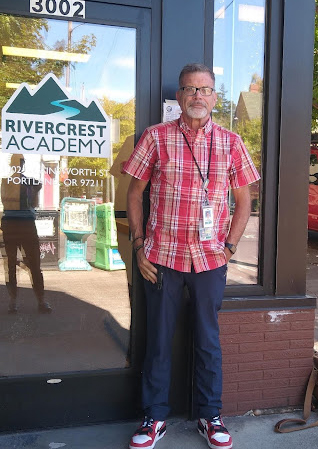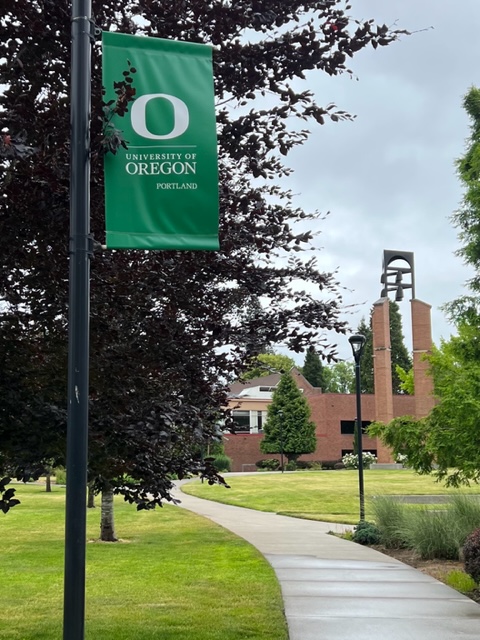By Kepper Petzing | Contributing Writer
A Community Hub I n 1957, Safeway built a large store with extensive parking at the corner of NE 42nd & Killingsworth. In 1972, when Safeway moved on, Portland Community College (PCC) had a vision of repurposing the building for a Workforce Training Center to support those entering or reentering the job market.
In 2017, PCC wanted to update it and Multnomah County voters approved a bond measure to make that vision a reality. In 2023, the Opportunity Center at NE cm42nd Avenue opened, gathering together essential services in one place, while still helping people navigate changing work environments.
This year, the remaining pieces of the community hub will open, completing the vision almost 10 years in the making.
Services at the Opportunity Center
At the Opportunity Center, the PCC team helps people explore careers, develop skills, and create a plan to succeed. The Center also provides education and on-the-job training. The Small Business Development Center helps community entrepreneurs launch or grow a small business through no-cost, one-on-one business advising and affordable business education for longterm success.
A variety of non-profits have partnered with PCC for this project. Oregon Department of Human Services supports all residents on a path out of poverty and toward whole well-being. Programs include food benefits, cash assistance, services for domestic violence survivors, resources for refugees, and support for youth experiencing homelessness. They welcome people to stop by with questions. Native American Youth and Family Center (NAYA) is a family of numerous tribes and voices rooted in sustaining tradition and building cultural wealth. It provides culturally specific programs and services that support youth and families. The soon-to-open Fernhill Health Center offers primary care, a pharmacy, and dental care. If you are unable to pay or don’t have health insurance, they want to help. Neighbors are invited to the Grand Opening on May 30th to hear about the center and tour the facilities. See calendar on page 12 for more details. Home Forward is building a new 84-unit family-focused affordable housing apartment community on the site. Early learning classrooms run by NAYA will be part of the housing complex and are also expected to open in the summer.
This project was made possible, in part, by the 2018 voter-approved Metro Housing Bond. When completed, the apartment complex will have a 16,000-square-foot plaza and amphitheater. Along with Concordia Commons at NE 30th & Killingsworth, it will be a neighborhood space for community gatherings. What will we celebrate there?
A Collaboration for the Community
Ivory Mathews, CEO of Home Forward says, “This collaboration is a testament to what can be achieved when organizations come together with a shared vision of creating opportunities for families to thrive and communities to prosper.”
Kepper Petzing has lived in Concordia for 40 years where, with their partner Lowen, they raised two children. They are nonbinary. They love community and are grateful for Concordia News.





